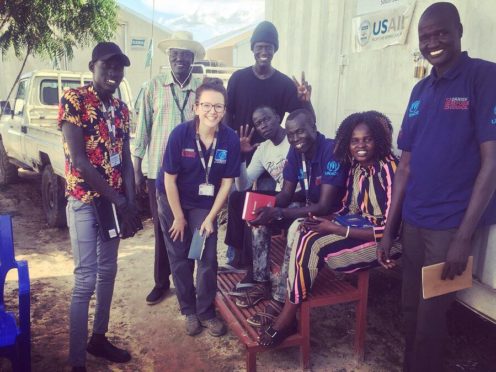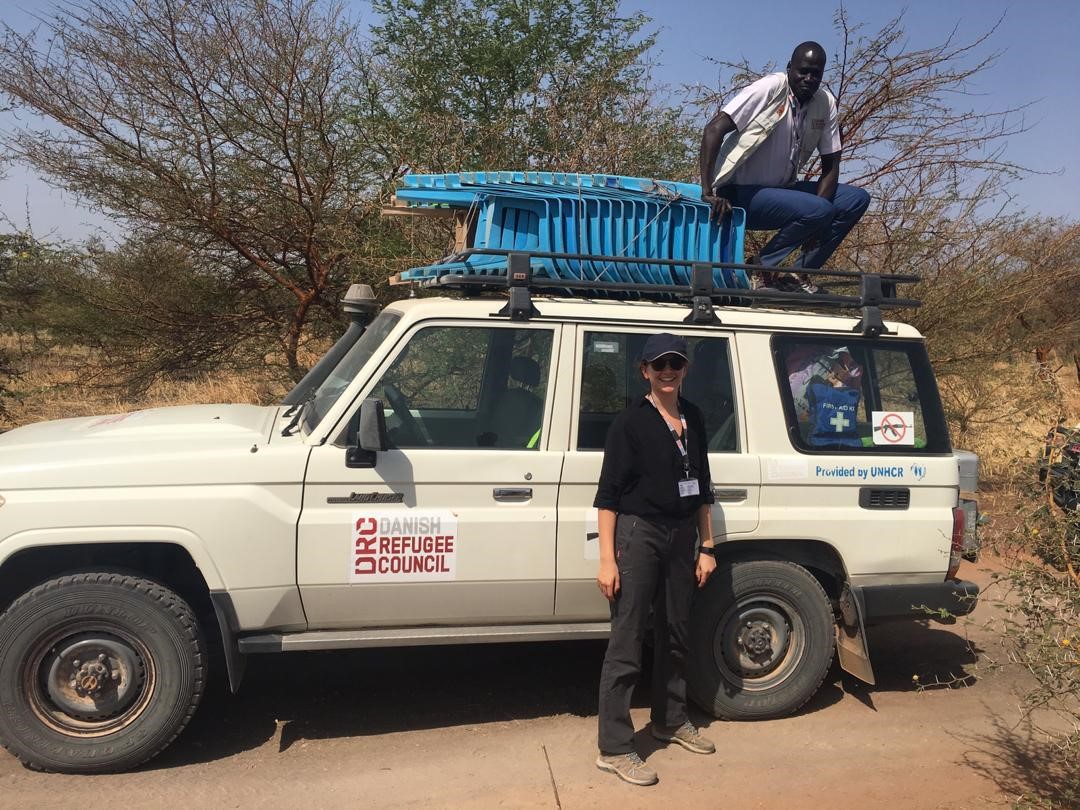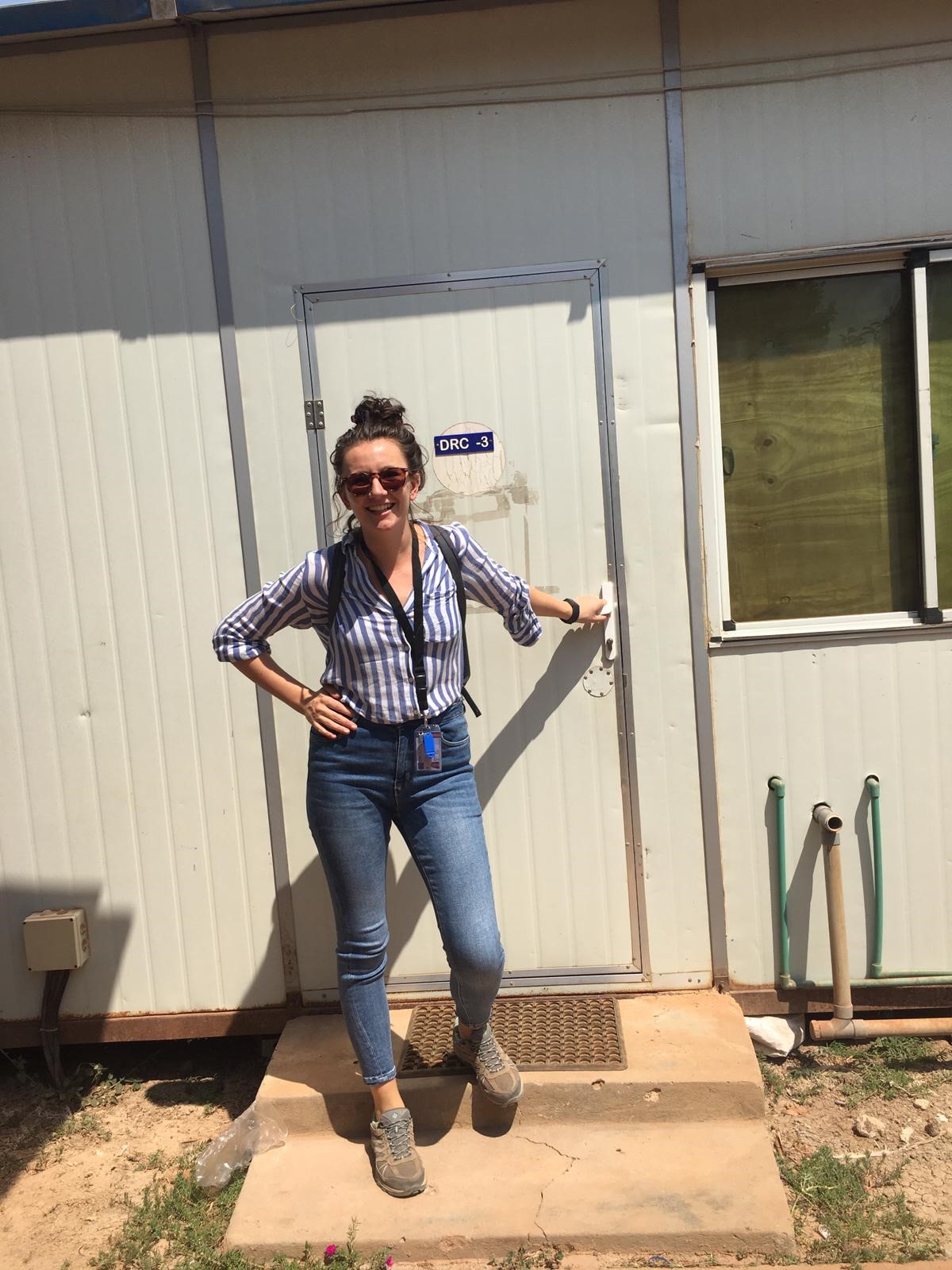It perhaps ironic that Anna Salvarli is living in the world’s most dangerous country for aid workers – as she is a self-confessed hypochondriac who was too scared to play contact sports at school.
Ms Salvarli, from Appin near Oban, lives in a shipping container in South Sudan as she plays a role in helping the nation recover from a brutal civil war that has killed an estimated 383,000 people.
South Sudan also witnesses the highest number of attacks on aid workers, including hostage takings, anywhere in the world.
Ms Salvarli was first posted to the region three years ago and is now a technical solutions coordinator for the Danish Refugee Council.
“My parents found it amusing that I wanted to work in South Sudan because I am the kind of person who won’t do certain sports, like shinty or hockey, because I think it’s too dangerous,” she said.
“South Sudan’s a funny place for someone like me to live because I am a bit of a hypochondriac.
“When you are in the UK, if you get a temperature, you think ‘I’ve got a bad cold or a bit of man flu’.
“But when you are here, and you get a temperature, you could have malaria or something even worse.”
South Sudan is suffering the world’s worst man-made humanitarian crisis – with nearly four million people displaced and over six million people facing acute food insecurity.
Devastating flooding at the end of 2019 weakened an already vulnerable population and, combined with fighting and humanitarian access issues, there is a risk of famine in some areas.
Big news from Sudan: BBC: Omar al-Bashir: Sudan agrees ex-president must face ICC https://t.co/20e4umu98Z
— Halima Gikandi (@HalimaGikandi) February 11, 2020
Ms Salvarli has been living in Bentiu – one of the areas worst-hit by the civil war.
Her role involves travelling the country to offer assistance to displaced people, mainly living outside of the camps.
The 28-year-old said: “The levels of poverty are staggering. You see people walk for two days just to get food. That is a part of what they do every month.
“In most of the remote locations that we go to, a school is a teacher, who is a volunteer, teaching under a tree, with children sitting around on the ground.
“It can make it tricky coming back to Scotland and hearing what people moan about.”
“But I really try not to be that person that goes on a night out in Glasgow and says ‘Oh, do you realise this gin and tonic costs as much as someone’s daily wage?’ because I’ll end up with no friends.”
International Development Secretary Anne-Marie Trevelyan last night praised the Appin-born 28-year-old’s work.
She said: “I am so proud of those like Anna who are taking on huge personal risk to help make a difference in the country, working alongside British aid workers and our military personnel.
“South Sudan’s leaders have an opportunity in the coming weeks to show their people that peace is the best solution and help build a strong democracy.”
A war-torn decade for South Sudan
South Sudan has faced an extremely turbulent first ten years in existence.
It became an independent state in 2011, breaking away from Sudan in a move that marked the end of a long-running and bitter civil war.
But peace did not last long and in 2013 the country fell into a fresh and “devastating” conflict that has claimed the lives of hundreds of thousands of people.
Millions have been forced to flee their homes and refugee camps dot a strife-torn nation.
While the war had political origins, it also has huge and complicated ethnic undertones.
Tens of thousands of children were forcibly recruited as #childsoldiers during the South Sudan civil war.#AidZone w/ @eu_echo https://t.co/4YCmKRLNSQ
— euronews (@euronews) February 27, 2020
The Dinka and Nuer, South Sudan’s two largest ethnic groups, which the country’s two leaders belong to, have been accused of targeting each other in the war, with atrocities committed reported on both sides.
Famine has also gripped the country as its political parties have repeatedly failed to come together to find solutions.
A peace agreement was to have been finalised by May 2019 but was twice postponed.
Last month, however, the country’s warring sides finally came together to form a transitional coalition government – with hopes this will finally start the peace process for South Susan.
Former South Sudanese rebel leader Riek Machar was sworn-in as first vice-president, embracing and shaking hands with his one-time rival, President Kiir.
Congratulations great day for peace in Republic of South Sudan. #SouthSudan pic.twitter.com/CRFCCsGLev
— Awut Deng Acuil (M.P.) (@AwutDengAcuil) February 22, 2020
Their longstanding disagreements will be “negotiated” under the transitional coalition government, it has been promised – though many critics remain sceptical.
More than 10 agreements and ceasefires have been reached since the two leaders first fell out in 2013 and their inability to sustain any deal, including on power-sharing, has been at the heart of the conflict.


